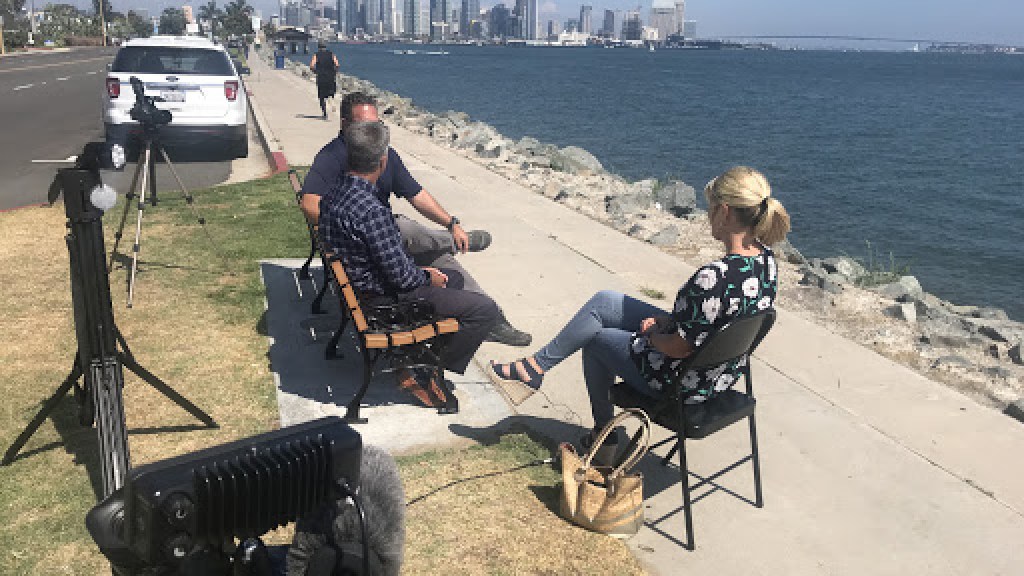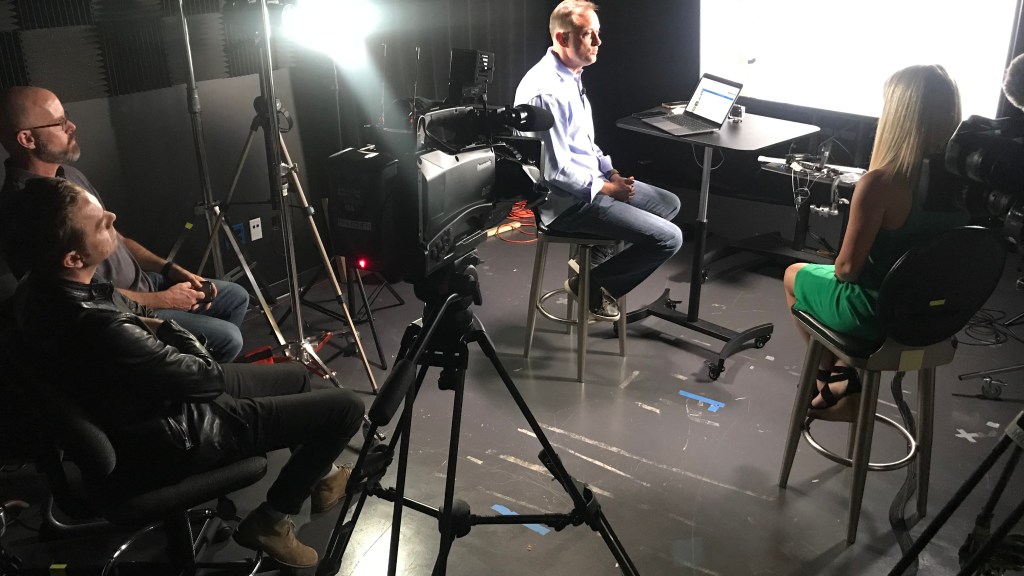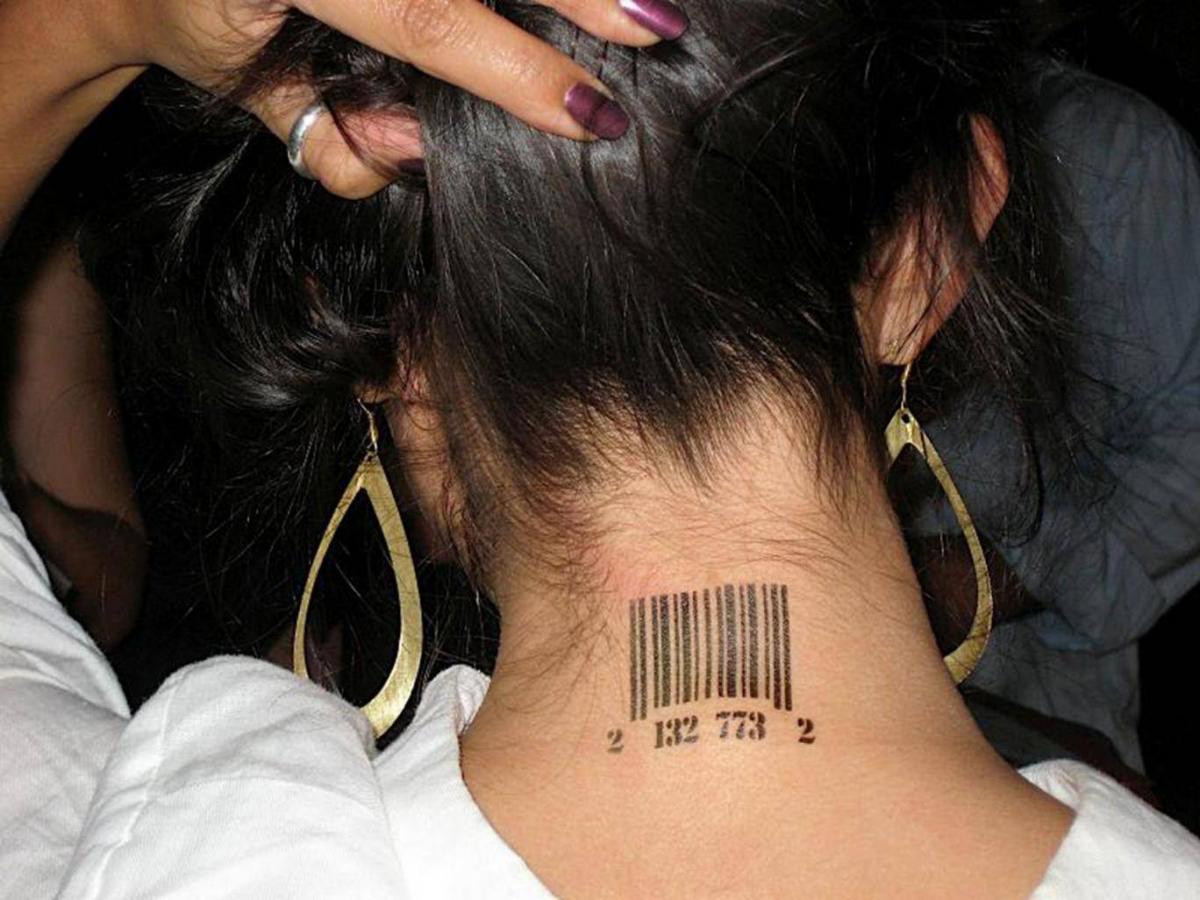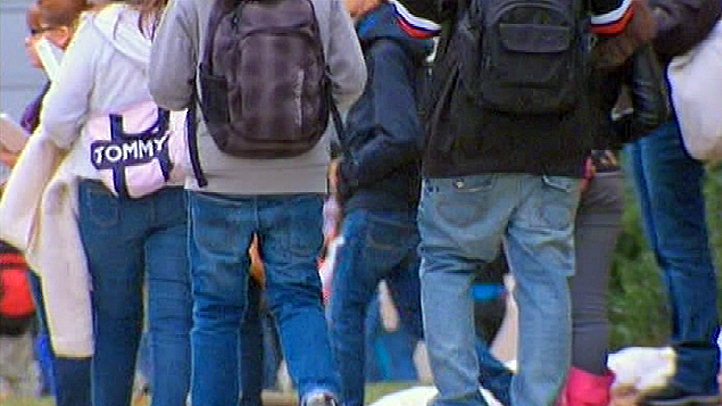“STOLEN” is a year-long NBC 7 investigation into the sex trafficking and exploitation of children in San Diego County. The seven-episode documentary series is told from the perspective of survivors, advocates -- even traffickers, and sex buyers, explaining the depth and scope of this problem in our communities and our schools. And with more children online during the coronavirus pandemic, experts say they are at greater risk of exploitation now more than ever. “STOLEN” celebrates the strength of survivors and their families, as they struggle to free themselves from the bonds of sex trafficking. See the full series here.
A FATHER SEARCHING FOR HIS DAUGHTER
A determined father drives around San Diego, searching for something dear to him: His teenage daughter. His view of the waterfront city is different than it is for most others.
“It's hard for me to rest when I don't know where my daughter is,” he said as he struggles to hold back his emotions. “Sometimes I'm driving, I see homeless people, and I’m like, ‘Is that my daughter?’”
The middle-aged father, who wishes to go by the name ‘David,’ hopes one day that the answer to that question will be ‘yes’ (NBC 7 is not using the father’s real name to protect his family’s identity.)
David says the trouble with his daughter began shortly after she started her first job in high school at a fast-food restaurant. His daughter was 17 when she met a man at work who was nine years older.
“She got a job at a local hamburger place. What I didn't know is that when she was working there, there was going to be a predator there who was actually out there to boyfriend these young women, and, unfortunately, my daughter got caught up in it,” David said.
David believes that’s when “the grooming process” started. As the relationship developed between his daughter and the 26-year-old man, David says his daughter grew distant and secretive -- two red flags that experts point to as potential signs of trafficking or exploitation.
It's not something that happens where it's some dramatic, 'I'm going to just snatch the kid and take them away,’ kind of a thing. No, it happens slowly over time.
David, Father of a Sex Trafficking Victim
Then, David discovered something that would change everything. He says his ex-wife was first to find photos of their teenage daughter on a website advertising sex.
“I was just, like, closed off. All I could think about was how I could rescue my daughter,” he said.
David’s daughter eventually left home and stopped contacting him.

Then, during our investigation, David and NBC 7 received news he had been waiting for years to hear. His daughter’s boyfriend was arrested and charged with pimping and pandering.
But David still fears his daughter may not be ready to leave the life, and he’s hopeful that by sharing his painful experience, it will prevent other parents from suffering a similar heartbreak.
“One reason why I'm talking about this is because there's a parent out there that needs to hear this and there are young girls that need to hear this. Our high school kids need to hear this, to know that there are people out there that are gonna take advantage of you and don't care about you,” he said.

THE DIGITAL THREAT
Stories like David’s are all too familiar for Charisma De Los Reyes. Working with San Diego County’s Child Welfare Services, De Los Reyes coordinates programs that assist kids who are at-risk or have experienced commercial sexual exploitation.
While there are groups of children who are more vulnerable to exploitation, she says the relevance of social media and online activity, in general, is now responsible for luring children who were once thought to be far removed from sex trafficking and exploitation.
“The internet, social media, Snapchat, you know those types of things are the norm for how our youth communicate, how they share themselves, which is great. There's nothing wrong with that… (unless) it falls into the wrong hands," De Los Reyes said.
A former Qualcomm Executive says if your child is on social media, then they are at risk of being approached by a predator. Hear his tips for parents, and some apps you can download to help protect your child in this podcast episode of "Into San Diego"
In fact, after stay-at-home orders were issued in March 2020 during the coronavirus pandemic, reports of internet crimes against children have increased dramatically across the nation and in San Diego.
The San Diego County Human Trafficking Task Force says they have seen a spike in the number of juveniles rescued from trafficking since the coronavirus pandemic began. For example, in the month of June 2020, they recovered 11 juveniles, compared to one juvenile the year before.
NBC 7 reviewed court records for every San Diego County trafficking or pimping prosecution since 2014 and found case after case that started with online grooming; traffickers who found their victims on social media and messaging apps like Facebook, Snapchat, and Kik.
“We certainly, at the task force, see a lot of cases where the victims have met their traffickers online,” said Deputy District Attorney Carolyn Matzger, the lead prosecutor assigned to San Diego County’s Human Trafficking Task Force. “Kids don't realize who they're speaking to on the other end of a computer (or phone). They have no idea. They think that they're speaking to maybe another 17-year-old boy or something like that. That's how these traffickers portray themselves.”
Kathleen Thomas, a clinical counselor with North County Lifeline -- a nonprofit that provides resources for victims of trafficking or exploitation -- has been working with survivors of sexual and relationship violence for a decade.
She said the internet has created instant, global access to each individual, exposing a vast number of young people to strangers, including traffickers, they wouldn’t have otherwise encountered.
I don't think we, as a society, have fully caught up to the dangers of social media and the internet and self disclosure, in particular.
Kathleen Thomas, Counselor With North County Lifeline
Thomas said many people, especially teens, are seeking validation and approval, and if they’re not finding it at home or within the safety of friends, they’re seeking it from the general public, which can be dangerous.
THE INSTAGRAM CRAWLER
Roger Martin knows just how dangerous a place the internet can be for young people. Martin, a father, and former executive at Qualcomm, has been working on technology that could counter the threat of predators online.
“It wasn't face-to-face in malls anymore. It wasn't on the street anymore. It was online. And the biggest recruiting grounds online were Facebook and Instagram, particularly Instagram for teens,” he said.

Martin’s nonprofit Humans Against Trafficking connected a team of people from the tech industry to develop a program they call an “Instagram Crawler."
The crawler uses artificial intelligence to scan Instagram for highly specific, predictive information like pictures, hashtags, and comments that might attract a predator and to flag potentially at-risk profiles
So far, Martin and his team have used the crawler to analyze about 2 million public Instagram profiles of young teenagers. Of those, they identified about 60,000 profiles as being “very strongly at risk” or vulnerable to a trafficker.
Once his Instagram crawler identifies someone as being at-risk, Martin’s team will connect with that person through an outreach campaign they've created called Models Against Trafficking.
The campaign plan is to invite people to partner with Models Against Trafficking and in doing so, provide tips on safe modeling practices while teaching a lesson on how to spot predatory behavior and red flags.
In many cases, Martin said the young people’s profiles they scanned appeared to be posting amateur modeling pictures -- seeking approval of the general public. Martin and advocates say this can open the door for a potential exploiter to pose as a modeling agent or a photographer and begin a dialogue with the teen.
In a demonstration of his “Instagram crawler” program with NBC 7, Martin uses artificial intelligence to scan Instagram for profiles deemed at-risk. Profiles with pictures of young people posing in sexually suggestive ways surfaced instantly; many of the photos appear to be taken inside the child’s home or bedroom.
Martin clicked on the comments for the photos, saying they often show potential signs of grooming. For example, he found one comment on a young teen’s photo that appeared to come from a middle-aged man saying, “I’m looking for a baby girl to spoil silly and take around the world on my business trips and will also be my assistant. Allowances and traveling bonuses inclusive. Must be from the states or Canada. DM (direct message) if you are interested.”
What begins as a casual interaction online sometimes escalates to something much more sinister, according to De Los Reyes. She’s seen a number of cases where a trafficker will use the trust relationship they’ve built with the youth to convince them to take and share revealing pictures or videos of themselves. These messages, she says, are later used by the exploiter as blackmail.
“The federal agents call it sextortion,” De Los Reyes said. “The threat of sextortion shames the teen into compliance.”
'If you don't do this for me I am going to put this out to everybody on the internet.' And once it's out it's out.
Charisma De Los Reyes, Child Welfare Services
The stakes are high, Martin says, and that’s why he hopes his team can reach teens who have been identified as having ‘at-risk’ profiles before a predator does.
“The expectation is that if we identify them before the trafficker can, we might be able to reach them with some educational material that would at least teach them a little bit about how this online recruiting and online grooming works,” Martin said.
Martin and his colleague Doug Hecht are also developing an app for parents and kids called Radlee. The app links to a child's social media profile and scans them for risky photos, comments or hashtags. If anything is flagged, the parent will get an alert.
Guidance For Parents
San Diego County District Attorney Summer Stephan says protecting kids begins with parents having important conversations.
“None of us can be right there,” Stephan said. “No police officer can stand next to every kid and be reviewing their apps to see who's luring them. What we need to do is build that resiliency inside our children. We know that we can do it.”
A NEW DEVELOPMENT
David is still holding on to hope that he will be reconnected with his daughter.
On August 2, 2019, his daughter’s alleged trafficker was arraigned on pimping and pandering charges. (Even though he’s an adult, NBC 7 is not identifying the trafficker to protect the identity of the alleged victim.)
But outside of court, David’s daughter told NBC 7 she is not being trafficked. She says the man accused of these crimes is her boyfriend, and that her father is “controlling.”
The alleged trafficker posted bail and is now awaiting trial, which has been delayed due to the coronavirus pandemic.
But for David, the news is bittersweet. His daughter refused help from sex trafficking survivor services and, instead, has repeatedly defended her alleged trafficker.
“The hardest thing for me is to love her unconditionally from a distance,” David said. “My big goal right now is to get my daughter out of that world. And help as many people not go to that world.”




